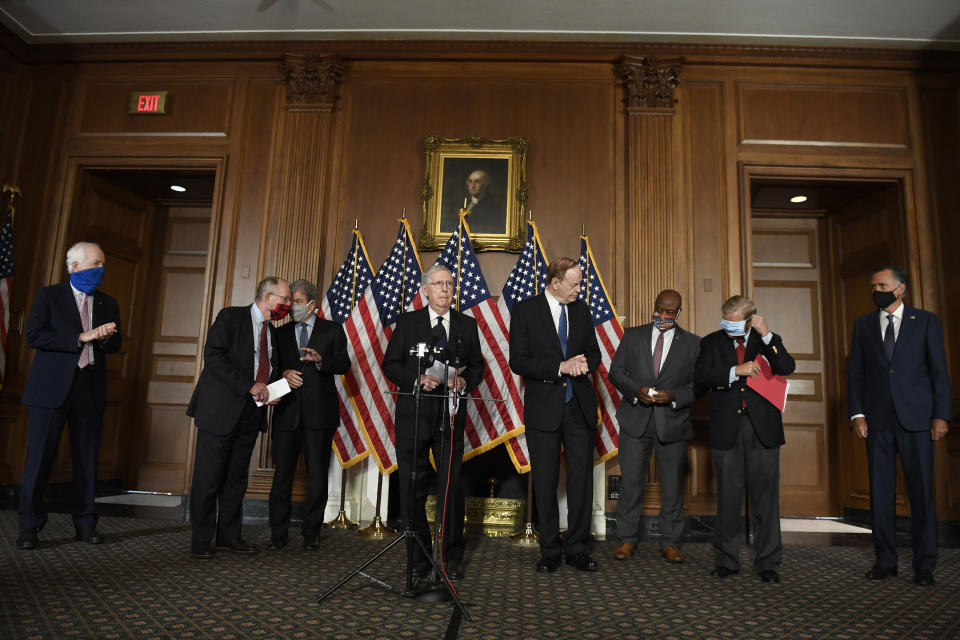Coronavirus stimulus: What this top strategist thinks will happen next with unemployment checks
One long-time DC policy strategist thinks there is hope for the millions of people that have lost the ‘top up’ in their weekly unemployment checks after it expired on July 31.
But it may take more time before that hope could be turned into cold, hard cash.
“There are 30 million Americans who are unemployed who are relying upon that extra income who don’t know when that next check is going to come. I do think when a final deal is struck, it will be retroactive starting on August 1,” Raymond James Washington policy managing director Ed Mills told Yahoo Finance’s The First Trade. “If you remember back to the CARES Act, because it took time to implement the act especially with some of the really old systems at the state level, what that bill said is that it was retroactive to the day you apply. So I do think if we cut a deal, whatever it is, there is going to be back pay for these unemployed Americans.”
The keyword there by Mills is if.
Senate Majority Leader Mitch McConnell is keen on a new $1 trillion stimulus package. As part of that plan, the Washington Post reports that the top up would be slashed to $200 from $600 a week. That’s a far cry away from House Democrats retaining the $600 payment in their $3 trillion stimulus package passed several weeks ago. McConnell and 20 or so other Republicans are lukewarm on adding more debt to the nation’s already heavily indebted books.

Both sides remain far apart in reaching a deal. But Democrats and Republicans do agree on a fresh round of stimulus checks in the area of $1,200, which would be similar to the Coronavirus Aid, Relief, and Economic Security (CARES) Act.
Ultimately, if a decision isn’t reached soon on unemployment checks it will be the U.S. economy that suffers going into September (and then the presidential election).
Economists at Wells Fargo estimate a dramatic loss in consumer spending power.
“If supplemental payments go to zero, we would expect to see a measurable hit to consumer spending. Over the past three months, consumer spending has averaged $1.1 trillion dollars a month. Assuming all of the lost income were to translate into a commensurate drop in personal consumption, all else equal, spending for August could be about $78 billion lower, a monthly decline in the neighborhood of 7%. Prior to the current crisis, the largest monthly decline on record was 2.1% in figures that go back to the 1950s,” wrote Wells Fargo senior economist Tim Quinlan in a note to clients.
Brian Sozzi is an editor-at-large and co-anchor of The First Trade at Yahoo Finance. Follow Sozzi on Twitter @BrianSozzi and on LinkedIn.
Coca-Cola CEO: here’s what our business looks like right now
Dropbox co-founder: the future of work will be all about this
Follow Yahoo Finance on Twitter, Facebook, Instagram, Flipboard, SmartNews, LinkedIn, YouTube, and reddit.


